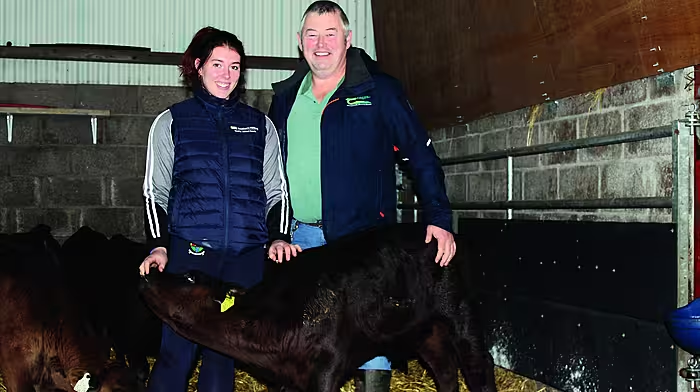Southern Star, January 3rd, 2015
 EVEN though they only provide snapshots in time, opinion polls can be a source of joy for some or a call to undertake serious soul-searching for those adversely affected and the latter is the case for the three biggest political parties for several decades now – Fine Gael, Fianna Fáil and the Labour Party – when they can only muster the support of just half of the voters between them, according to a number of recent polls. Sinn Féin, despite being dogged by various controversies, and the large cohort of independents in the Dáil would get the first preference votes in a general election of the other 50% or so of those polled recently.
EVEN though they only provide snapshots in time, opinion polls can be a source of joy for some or a call to undertake serious soul-searching for those adversely affected and the latter is the case for the three biggest political parties for several decades now – Fine Gael, Fianna Fáil and the Labour Party – when they can only muster the support of just half of the voters between them, according to a number of recent polls. Sinn Féin, despite being dogged by various controversies, and the large cohort of independents in the Dáil would get the first preference votes in a general election of the other 50% or so of those polled recently.
Who would ever have thought that, based on these figures, even if Fine Gael and Fianna Fáil were to coalesce, they would not have enough seats between them to form a government? The times they are a-changin’!
Of course, the government parties, who are suffering most, have only themselves to blame because they do not seem to be listening to the voice of the people who elected them, as the public sees only the same old same old with no trace of the much-trumpeted ‘new way of doing politics’ they were promised in the programme for government that followed the last general election. The Constitutional Convention set up by the government, while coming up with some useful suggestions, merely scratched at the surface of what needed to be done in terms of political reform and some of their recommendations still have to be put to the electorate by way of referenda.
When the government’s proposal to abolish the Seanad was defeated in a referendum last year, the public’s preference for reform rather than abolition became obvious during the campaign and Taoiseach Enda Kenny promised to act on this. However, fifteen months on, nothing significant has happened to carry out the wishes of the people.
Indeed, this has been a hallmark of the government for the past year, having got dragged in to so many controversies – many of them of their own making – they have lost the moral authority they possessed for the first three years of their term of office. It is ironic, therefore, that having governed decisively in implementing the many unpopular decisions that were needed to address our economic troubles, they should falter at the final hurdle – the introduction of water charges – which was the straw that broke the proverbial camel’s back.
The water charges protests were not just about the charges themselves, but a manifestation of the great public dissatisfaction that exists with the government and, indeed, all those who would be perceived as establishment figures across the political divide. People were being told about an uplift in the economy without feeling it in their pockets and then being lumbered with having to pay dearly for Irish Water, which clearly was not fit for purpose.
The embarrassing row-back by the government on water charges may have been too little too late to restore their credibility, but this was not the only issue that led to their downward trajectory in the public eye this year: All the controversy which led to the ‘early retirement’ of Garda Commissioner Martin Callinan and the subsequent resignation of Minister for Justice Alan Shatter damaged Fine Gael and Labour in the local and European elections in May and led to a change of leader of the latter party.
After trying to make a fresh start with a Cabinet reshuffle in July, it was not long before the McNulty affair, which saw Fine Gael make a hamfisted attempt to secure an advantage for its nominee in the election to replace MEP Deirdre Clune in the Seanad that was ultimately exposed as the cronyism it was, leading the public to the conclusion that they are never going to get that promised ‘new way of doing politics’ from this government. For a coalition that had pledged a move away from how previous administrations did their business, this was yet another serious let-down.
While Fianna Fáil did quite well in the local elections, Sinn Féin has now positioned itself as the main opposition party, in tandem with a motley collection of independents, tapping into people’s disillusionment with a pandora’s box of populist promises. But, people should always be wary of promises made by politicians, whatever their hue.
After such a bad year, which started with the government reveling in good economic tidings and ending with it fighting a rearguard action to restore its credibility, it faces a massive challenge to get back on track ahead of the next general election. It is becoming more of a damage-limitation exercise really, given the depth of public disappointment.
But, whenever the term ends, people should balance the government’s achievements against their failings and weigh up the quality of the alternatives before passing final judgement at the polling stations. And, remember, political stability will always be necessary to keep our economic recovery on track.









